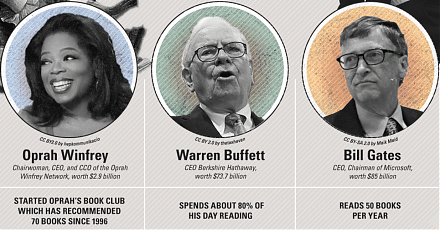

2025-08-09 11:31:00 Sat ET
stock market technology platform network scale lean startup fifth discipline value creation flywheel perseverance resilience passion reinvention disruptive innovation purpose vision mission blue ocean personal finance grit self-help self improvement focus motivation personal growth
Karl Ulrich (2021)
Mastering Massive Open Online Courses (MOOCs) to Achieve Our Goals
Today, many top-flight universities provide massive open online courses (MOOCs) for many lifelong learners to achieve their medium-term goals, tasks, and missions for smarter, faster, better, and greater focus and immersion in the flow experiences, personal growth, intellectual stimulation, self-improvement, and so forth in modern life, business, innovation, and even entrepreneurship. Several freemium platforms serve as the online interfaces for these courses. These platforms include Coursera, edX, Udacity, FutureLearn, and Khan Academy. In recent years, the most popular online courses span generative artificial intelligence large language models (Gen AI LLM), machine-learning algorithms, mathematics, statistics, theoretical physics, quantum mechanics, generality relativity, molecular biology, chemistry, law, justice, finance, fiscal-monetary policy coordination, economic policy evaluation, strategic management, cost-benefit analysis, business administration, public policy, political science, environmental, social, and governance (ESG) woke capitalism, sociology, psychology, history, geography, and even the modern science of happiness. Many of the globally prestigious, top-notch, and elite universities now provide most of the online courses to showcase their rare unique study experiences in the virtual world. These universities span Harvard, Stanford, Berkeley, Chicago, Columbia, Wharton, Yale, NYU, MIT, UCLA, and many more. At any pace, many lifelong learners often get the most out of these online courses worldwide. In due course, their novel non-obvious growth mindsets, keystone habits, skills, insights, worldviews, hard truths, cultural values and beliefs, and iterative continuous improvements combine to help enrich the social and economic lives of others in our inclusive global human society. Today, several smart successful companies provide products, goods, and services in support of our keystone habits, social skills, intellectual worldviews, insights, and so forth. In recent years, these smart companies reap many sales, profits, benefits, and long-term sustainable competitive advantages in some strategic sectors, blue-ocean markets, disruptive innovations, and some specific adjacent markets. These strategic sectors span social media networks, smart-phones, tablets, e-commerce platforms, Internet search engines, generative artificial intelligence large language models (Gen AI LLM), graphics processing units (GPU), semiconductor microchips, electric vehicles (EV), autonomous robotaxis (AR), telecoms, cloud services, high-speed broadband networks, virtual reality (VR) headsets, quantum computers, AI-driven healthcare services, and new pharmaceutical medications, treatments, and therapies. For the best business use cases, several subtle product design choices remake, reshape, and reinforce our keystone habit formation.
The Hebrew phrase, Tikkun Olam, means world repair. In modern Christian circles, Tikkun Olam has become synonymous with the meaningful notion of constructive social actions that contribute to a better world. God provides us with fire and wheat so that we can come up with bread. In a similar vein, God provides us with fire and clay so that we can bake the bricks ourselves. In this rare unique way, we become partners in completing the act of creation. In this positive light, our time on earth is important. We are not just passive observers, but also active participants in helping make the world a better place. Christians bear a sense of individual responsibility in accordance with the concept of Tikkun Olam. In the modern age, entrepreneurs share the same sense of individual responsibility for their advisors, specialists, and other team members to enrich the social and economic lives of others with positive contributions. Often many cofounders and entrepreneurs should learn to reconcile what they want with what they can risk in order to accomplish their long-term goals. In this crucial way, these co-founders and entrepreneurs pass the tests of life, fulfill lofty social causes and life purposes, and make productive uses of our gifts, talents, skills, core competences, and other dynamic capabilities from God in accordance with His love, grace, and divine nature. By harnessing the new science of habitual power, we can often better transform our daily lives, businesses, and communities worldwide.
Atomic habits serve as the compound interest of self-improvement. Sometimes we remake, reshape, and reinforce small, subtle, persistent, and incremental keystone habits, social skills, intellectual worldviews, prescient insights, dynamic capabilities, and other core competences. As we practice what we preach over many years, we turn these small and subtle keystone habits, social skills, and so on into the positive flywheel effect, or equivalently, our iterative process of building momentum through incremental progress in pushing a big heavy flywheel. In due course, the keystone habits help promote personal growth, system-wide mastery, and self-improvement. Sometimes subtle product design decisions reinforce our keystone habit formation. When we use, apply, and leverage some specific products, goods, and services to support our keystone habits, some smart companies score small constructive wins in sales, profits, benefits, and several other sustainable competitive advantages in their blue-ocean niche markets, disruptive innovations, and even adjacent markets. Today, many Internet influencers and key opinion leaders (KOL) help serve as the mainstream gatekeepers for smart products, goods, and services via social media networks (such as Facebook, TikTok, Twitter, Snapchat, Reddit, and Pinterest etc) as well as global e-commerce platforms (such as Amazon, eBay, Rakuten, Shopee, Alibaba Taobao, Etsy, Walmart, Flikpart, JD, Pinduoduo, Mercado Libre, Lazada, and so on). Lifelong learners listen, focus, adapt, respond, and behave in response to key external life circumstances, vicissitudes, scenarios, situations, and episodes. Over several years, the lifelong learners tend to focus on small, subtle, incremental, and persistent iterative continuous improvements at different points of the common business cycle. As a result, these lifelong learners pivot, persist, and persevere to navigate several setbacks, flaws, faults, failures, obstacles, difficulties, distractions, and disappointments in our life, business, innovation, and even entrepreneurship. In due course, many inventors, specialists, subject matters experts, and other team players can often help senior leaders, special advisors, key strategists, and project managers accomplish more with less time, effort, money, and energy. In summary, this good team chemistry often helps accelerate the novel, non-obvious, and next-generation disruptive innovations, technological services, and smart techniques for solving several specific problems, pain points, tasks, goals, and missions for global market users, early technology adopters, and consumers worldwide. Even though these experts value simplicity, they are neither naïve nor simplistic today. Tapping into their time, effort, energy, and creativity can prove to be sound, robust, efficient, effective, and productive in time. Most of the team players keep their active interest in working toward to a bigger, brighter, better, and bolder long-run corporate vision, social good, or life purpose. This social responsibility helps better align the cultural values, beliefs, worldviews, and behaviors of many millennials with new ESG woke capitalism. In the broader global context, environmental protection, social harmony, and corporate governance combine to inform some specific aspects and elements of our daily social and economic lives, businesses, and communities worldwide far beyond personal gains.
Today, many top-notch universities provide massive open online courses (MOOCs) on a wide variety of educational subjects. Many of these online courses are free to the general public. Many of these online courses involve some optional completion certificates with some small and affordable fees, online ads, and other costs. Many lifelong learners take this new opportunity to participate in these online courses. In these online courses, students face no entry barriers or participation requirements. Almost all lifelong learners with their own computers, online browsers, and Internet connections can join these online courses worldwide. These lifelong learners listen, focus, adapt, and immerse themselves in these online courses in accordance with their personal needs, demands, and schedules. Most of these learners spend 4 to 6 hours per week on MOOC study, homework, and exam preparation. Most lifelong learners sign up for these online courses to enhance their skills, core competences, and dynamic capabilities. Some online courses further help these lifelong learners refresh their memories in some specific subjects. Also, some online courses further help these lifelong learners solve some specific problems, pain points, flaws, faults, failures, setbacks, difficulties, distractions, disappointments, and even obstacles in life, business, innovation, and entrepreneurship. In essence, these online courses require self-awareness, focus, discipline, motivation, and some external validation. Specifically, these online courses empower lifelong learners to broaden their skills, growth mindsets, intellectual worldviews, insights, habits, social competences, and other dynamic capabilities. Online reviews allow these lifelong learners to evaluate these online courses across a wide variety of fields, subjects, and topics etc.
The recent rise of online courses has made it possible for numerous global market users, early technology adopters, and consumers worldwide to learn new concepts, subjects, and topics. Just several decades ago, only several elite universities could provide these courses on an in-person basis with face-to-face human interactions. In reality, these new online courses cannot serve as a perfect substitute for college education and graduate research, but these online courses provide a substantially more immersive self-learning experience than several other bespoke options such as picking up a textbook, listening to a podcast, and reading an academic research journal publication. In recent years, the mainstream service providers seek to make many of their bespoke tailor-made online courses more mobile-friendly. As a result, lifelong learners can go through some specific online courses on their smartphones, computers, tablets, and other mobile devices.
Many globally free and open online courses are shorter and relatively less rigorous than traditional college courses. At the same time, however, these online courses still require significant time commitments. At any pace, most online courses archive books, survey articles, research papers, and other course materials throughout the semester. Most of the lifelong learners have the new vital opportunity to review key lessons, insights, and takeaways from some specific online video segments. Some of these online courses allow lifelong learners to choose among many books in the library. These new choices further empower many lifelong learners to assess many different expert views, opinions, judgments, decisions, and behaviors in academic study groups, research websites, online chat networks, and social media platforms. For personal growth, knowledge enrichment, and self-enlightenment, these online courses lead to a broad spectrum of fields, subjects, and topics etc. Online courses serve as a new option for subject matter experts to hone their professional skills in some specific domains.
Many lifelong learners just sign up for some specific online course, browse the key course materials, but skip the homework assignments. Some lifelong learners who seek to better understand the crux of each course make time to complete most of the homework assignments. Only some of the lifelong learners commit themselves to completing each online course over one full semester. In due course, these latter lifelong learners extract the most intellectual value from each online course. Today, many elite universities provide the increasingly bespoke tailor-made massive open online courses (MOOCs) for many lifelong learners worldwide to achieve their own medium-term goals, tasks, and missions etc for smarter, faster, better, and greater focus, engagement, immersion, personal growth, intellectual stimulation, and self-improvement in life, business, innovation, and entrepreneurship. In recent decades, the most popular online courses span artificial intelligence large language models (AI LLM), machine-learning algorithms, mathematics, statistics, theoretical physics, quantum mechanics, generality relativity, molecular biology, chemistry, law, justice, finance, fiscal-monetary policy coordination, economic policy evaluation, strategic management, cost-benefit analysis, business administration, public policy, political science, environmental, social, and governance (ESG) woke capitalism, sociology, psychology, history, geography, and even the modern science of happiness. Many online course convenors often gamify the online study experiences, and the online students answer quizzes, play a few games, and complete homework assignments to win honor points in preparation for the final exam. Through the highly immersive study experiences, most of the lifelong learners engage in intellectually hectic, hard, and even arduous tasks, goals, and missions with almost no, little, or minimal time, effort, and energy. As a result, these new flow experiences often allow many of the lifelong learners to enjoy each online course with sharper laser-focus, engagement, intellectual stimulation, personal growth, and self-improvement in time.
With the necessary time costs, commitments, computers, and Internet connections, many lifelong learners now have the new educational opportunities to master many massive open online courses (MOOCs). Today, almost all of these lifelong learners worldwide can make time to master some specific online courses. In practice, such online courses can often help empower many lifelong learners to pick up new skills, keystone habits, growth mindsets, intellectual worldviews, core cultural convictions, values, beliefs, expert views, opinions, judgments, decisions, and behaviors. Many of these new educational opportunities for lifelong learners become better, broader, deeper, more pervasive, and more prevalent through many different massive open online courses (MOOCs).
Several top-notch elite universities provide massive open online courses (MOOCs) in conjunction with some specific online platforms. These online platforms include Coursera, edX, Udacity, FutureLearn, and Khan Academy. Specifically, if we enroll in an online course on generative artificial intelligence large language models (Gen AI LLM) and machine-learning algorithms at Stanford University, we take the online course through the official Coursera website with many online video lectures for a full semester, code snippets in Python and R, homework assignments, exams, and online reviews for course evaluation. In recent times, EdSurge suggests that more than 400 elite universities worldwide now offer almost 2,400 different massive open online courses (MOOCs) each year. Also, the vast majority of these online courses are free in English. These elite lecturers teach these online courses in English and more than a dozen other languages.
Several online courses have been available since the 1980s, but the earliest efforts failed due to the stringent speed limits of dial-up broadband technology at the time. Over the recent couple of decades from 2000, low-cost, affordable, and high-speed broadband Internet connections combine with global cloud services to launch new massive open online courses (MOOCs) at elite universities. As a result, these new online courses have now become more helpful, more popular, more prevalent, and more convenient for many lifelong learners worldwide. The vast majority of the new online courses set no special admission requirements nor prerequisite courses. In most cases, there is no formal application process. Several online platforms hence democratize college education and even graduate school education and academic research. These online platforms and video service providers help some top-notch elite universities design significantly bespoke tailor-made online courses such that each of the courses becomes substantially similar to one typical college course in each standard semester. With these online courses, many students worldwide can view the online lectures any time, on demand, and on any schedule throughout the week. In this rare unique fashion, most of the online courses remove the traditional entry barriers between new knowledge transfers and lifelong learners worldwide.
Top-notch elite universities make these online courses available on the Internet so that most lifelong learners can often take advantage of these online courses almost at zero marginal cost. Since their revolutionary introduction in the first few years of the new millennium, more than millions of online learners have now participated in these online courses. In recent years, many millennials tap into free online courses to share more broadly crucial knowledge transfers, positive externalities for recent research developments, disruptive innovations, technological advancements, and several other iterative continuous improvements in team performance, laser-focus, personal growth, intellectual stimulation, self-enlightenment, self-help, self-efficacy, and self-enrichment worldwide.
Some of these online courses charge some specific lifelong learners small fees for completion certificates. These online completion certificates formally prove that the lifelong learners completed some specific online courses satisfactorily. Specifically, Coursera and edX provide each lifelong learner a $50 online completion certificate. For some small fees per month, Udacity allows lifelong learners to keep some sort of online completion certificate with formal official verification, bespoke tailor-made access to math help, and weekly office-hour access to online professors, lecturers, mentors, coaches, instructors, and assistants. Because most of the online courses generally provide excellent experiences and personal chat discussions from world-class universities, professors, and lecturers online, these online courses provide a substantial average return on the baseline time investment for our personal growth, immersion, intellectual stimulation, and self-improvement. In several different parts and regions of the world, many lifelong learners report that they earn higher wages due to their stellar experiences of completing online courses in some specific fields, subjects, and topics. From Google, Apple, and Meta to Tesla, Nvidia, Amazon, and Microsoft, some specific tech titans now accept online completion certifications as the formal proof of satisfactorily completing key online courses in computer science, artificial intelligence (AI), large language models (LLM), neural networks, machine-learning algorithms, and many different programming languages (Python, R, SQL, SAS, Stata, MATLAB, C++, C#, Java, JavaScript, PHP, HTML, CSS, Swift, Native, React Native, Kotlin, Julia, Ada, Ruby, Perl, Fortran, TypeScript, and so on).
In addition to the standard educational components from online video lectures and quizzes to homework assignments, exams, and code programs, the online courses feature interactive online chat groups, forums, and discussions where students get to communicate electronically with their professors each week. Online lecturers or their assistants grade almost all the homework assignments for each online course from week to week. On a wider educational spectrum, each online course lines up somewhere between a textbook and a college course. Globally, many professional workers who work as businesspeople throughout each week take MBA-level online courses to develop their skills, knowledge spillovers, technological advancements, intellectual worldviews, actionable insights, expert views, opinions, and judgments. In practice, some disruptive innovators, cofounders, and entrepreneurs take online courses to secure substantial background knowledge for running each lean startup business. Several other lifelong learners take online courses to solve some specific problems, product innovations, and service improvements in the broader business context. Today, some smart successful companies often encourage their software engineers, disruptive innovators, technologically savvy pioneers, and several other technical trailblazers to take some specific online courses to upgrade their skills in some specific fields, subjects, and topics etc.
Some other lifelong learners take online courses for greater recreation, intellectual curiosity, and even intellectual stimulation. These online courses sometimes serve as highly immersive personal experiences such as playing a sport, reading a novel, coding up a new proprietary software solution, and painting a portrait for a regional museum. However, these online courses should never replace graduate studies in the sense that the vast majority of graduate studies incorporate academic research into the standard postgraduate curriculum. For this reason, several technologically savvy senior leaders, founders, inventors, and project managers should regard the satisfactory completion of each online course as a plus, but not a status symbol, a postgraduate degree, a full qualification, or a new replacement for graduate studies. Sometimes some specific sequences of online courses combine to serve as some specific sort of professional industry accreditation. Several remarkable certificates for professional industry accreditation include CFA, CPA, FRM, PRM, FSA, and so forth.
Massive open online courses (MOOCs) help lifelong learners enrich their personal experiences of picking up fresh skills, core competences, and dynamic capabilities. However, these online courses represent only an extra alternative option for these lifelong learners. In practice, each of the online courses often tends to serve as the bridge between a textbook and a more formal college course. In combination, even these online courses cannot replace graduate studies, the latter of which comprise key additional academic research in some specific domains, fields, subjects, topics, and so on. Many lifelong learners engage in substantially more human interactions as part of these online courses. For this reason, these lifelong learners often prefer to take these online courses instead of simply studying some specific textbooks on a standalone basis. On the other hand, the vast majority of the online courses are not as immersive as the typical classroom experience. In effect, the online courses cannot replace the richer educational experience of traditional graduate education. Also, many MBA programs provide new opportunities for peers to network with one another. In this new light, most graduate programs provide special cachet for future academic researchers, specialists, strategists, and subject matter experts in some specific domains, fields, subjects, and topics. Several industry-specific educational programs can often prove to be valuable in addition to many traditional educational options.
Sometimes some specific online courses serve as a new alternative portal to more in-depth graduate studies. In most cases, the online courses allow lifelong learners to assess whether these self-starters should commit to more comprehensive long-term graduate studies, scientific inquiries, and academic research projects in some specific domains, fields, subjects, topics, and so forth. Most of these online courses can help these lifelong learners and self-starters test the waters for some particular area of study without a big financial commitment.
Often many of these lifelong learners acquire new crucial insights from their friends, fellow classmates, and many other peers on the same online platforms. In practice, most of these lifelong learners should seek to communicate with their peers on the same online platforms, social media networks, or both. Some self-starters who live near each other can often set up symbiotic and reciprocal study groups in the same neighborhood. These peers can help us understand some specific online courses, core course segments, and their practical applications in the real world.
Mike Belsito serves as Director of Product Strategy at Movable, a smart health and fitness startup company. For this lean startup, the primary product is the Movband, a smart personal fitness tracker. Several years ago, Belsito intended to learn how gamification might help enhance the user experience for the Movband. He signed up for a Wharton online course on gamification and then asked his 25 employees to take this online course together. About one third of his 25 employees signed up to watch the online video lectures as a unique study group. These lifelong learners discussed the course after each online video lecture. Belsito gave the self-starters books on the same subject. Eventually, he appreciates the intellectual value of this online course for his own further education and his team performance, self-efficacy, and personal growth. At Movable, the team players learned more about developing an attractive user platform for the Movband. In the subsequent years, many startup companies such as Movable and others have come to regard these online courses as valuable resources for lifelong learners, team players, and self-starters.
Today, many top-flight universities provide massive open online courses (MOOCs) for many lifelong learners to achieve their medium-term goals, tasks, and missions for smarter, faster, better, and greater focus and immersion in the flow experiences, personal growth, intellectual stimulation, self-improvement, and so forth in modern life, business, innovation, and even entrepreneurship. Several freemium platforms serve as the online interfaces for these courses. These platforms include Coursera, edX, Udacity, FutureLearn, and Khan Academy. In recent years, the most popular online courses span generative artificial intelligence large language models (Gen AI LLM), machine-learning algorithms, mathematics, statistics, theoretical physics, quantum mechanics, generality relativity, molecular biology, chemistry, law, justice, finance, fiscal-monetary policy coordination, economic policy evaluation, strategic management, cost-benefit analysis, business administration, public policy, political science, environmental, social, and governance (ESG) woke capitalism, sociology, psychology, history, geography, and even the modern science of happiness. Many of the globally prestigious, top-notch, and elite universities now provide most of the online courses to showcase their rare unique study experiences in the virtual world. These universities span Harvard, Stanford, Berkeley, Chicago, Columbia, Wharton, Yale, NYU, MIT, UCLA, and many more. At any pace, many lifelong learners often get the most intellectual value out of these online courses worldwide.
Many globally free and open online courses are shorter and relatively less rigorous than traditional college courses. At the same time, however, these online courses still require significant time commitments. At any pace, most online courses archive books, survey articles, research papers, and other course materials throughout the semester. Most of the lifelong learners have the new vital opportunity to review key lessons, insights, and takeaways from some specific online video segments. Some of these online courses allow lifelong learners to choose among many books in the library. These new choices further empower many lifelong learners to assess many different expert views, opinions, judgments, decisions, and behaviors in academic study groups, research websites, online chat networks, and social media platforms. For personal growth, knowledge enrichment, and self-enlightenment, these online courses lead to a broad spectrum of fields, subjects, and topics etc. Online courses serve as a new option for subject matter experts to hone their professional skills in some specific domains.
Many lifelong learners just sign up for some specific online course, browse the key course materials, but skip the homework assignments. Some lifelong learners who seek to better understand the crux of each course make time to complete most of the homework assignments. Only some of the lifelong learners commit themselves to completing each online course over one full semester. In due course, these latter lifelong learners extract the most intellectual value from each online course. Today, many elite universities provide the increasingly bespoke tailor-made massive open online courses (MOOCs) for many lifelong learners worldwide to achieve their own medium-term goals, tasks, and missions etc for smarter, faster, better, and greater focus, engagement, immersion, personal growth, intellectual stimulation, and self-improvement in life, business, innovation, and entrepreneurship. In recent decades, the most popular online courses span artificial intelligence large language models (AI LLM), machine-learning algorithms, mathematics, statistics, theoretical physics, quantum mechanics, generality relativity, molecular biology, chemistry, law, justice, finance, fiscal-monetary policy coordination, economic policy evaluation, strategic management, cost-benefit analysis, business administration, public policy, political science, environmental, social, and governance (ESG) woke capitalism, sociology, psychology, history, geography, and even the modern science of happiness. Many online course convenors often gamify the online study experiences, and the online students answer quizzes, play a few games, and complete homework assignments to win honor points in preparation for the final exam. Through the highly immersive study experiences, most of the lifelong learners engage in intellectually hectic, hard, and even arduous tasks, goals, and missions with almost no, little, or minimal time, effort, and energy. As a result, these new flow experiences often allow many of the lifelong learners to enjoy each online course with sharper laser-focus, engagement, intellectual stimulation, personal growth, and self-improvement in time.
With U.S. fintech patent approval, accreditation, and protection for 20 years, our AYA fintech network platform provides proprietary alpha stock signals and personal finance tools for stock market investors worldwide.
We build, design, and delve into our new and non-obvious proprietary algorithmic system for smart asset return prediction and fintech network platform automation. Unlike our fintech rivals and competitors who chose to keep their proprietary algorithms in a black box, we open the black box by providing the free and complete disclosure of our U.S. fintech patent publication. In this rare unique fashion, we help stock market investors ferret out informative alpha stock signals in order to enrich their own stock market investment portfolios. With no need to crunch data over an extensive period of time, our freemium members pick and choose their own alpha stock signals for profitable investment opportunities in the U.S. stock market.
Smart investors can consult our proprietary alpha stock signals to ferret out rare opportunities for transient stock market undervaluation. Our analytic reports help many stock market investors better understand global macro trends in trade, finance, technology, and so forth. Most investors can combine our proprietary alpha stock signals with broader and deeper macro financial knowledge to win in the stock market.
Through our proprietary alpha stock signals and personal finance tools, we can help stock market investors achieve their near-term and longer-term financial goals. High-quality stock market investment decisions can help investors attain the near-term goals of buying a smartphone, a car, a house, good health care, and many more. Also, these high-quality stock market investment decisions can further help investors attain the longer-term goals of saving for travel, passive income, retirement, self-employment, and college education for children. Our AYA fintech network platform empowers stock market investors through better social integration, education, and technology.
This analytic essay cannot constitute any form of financial advice, analyst opinion, recommendation, or endorsement. We refrain from engaging in financial advisory services, and we seek to offer our analytic insights into the latest economic trends, stock market topics, investment memes, personal finance tools, and other self-help inspirations. Our proprietary alpha investment algorithmic system helps enrich our AYA fintech network platform as a new social community for stock market investors: https://ayafintech.network.
We share and circulate these informative posts and essays with hyperlinks through our blogs, podcasts, emails, social media channels, and patent specifications. Our goal is to help promote better financial literacy, inclusion, and freedom of the global general public. While we make a conscious effort to optimize our global reach, this optimization retains our current focus on the American stock market.
This free ebook, AYA Analytica, shares new economic insights, investment memes, and stock portfolio strategies through both blog posts and patent specifications on our AYA fintech network platform. AYA fintech network platform is every investor's social toolkit for profitable investment management. We can help empower stock market investors through technology, education, and social integration.
We hope you enjoy the substantive content of this essay! AYA!
Andy Yeh (online brief biography)
Co-Chair
AYA fintech network platform
Brass Ring International Density Enterprise ©
Do you find it difficult to beat the long-term average 11% stock market return?
It took us 20+ years to design a new profitable algorithmic asset investment model and its proprietary software technology with U.S. fintech patent protection over 20 years. Our new AYA fintech network platform serves as everyone’s first aid for his or her personal stock investment portfolio. In practice, our own proprietary software technology empowers each investor to apply real-time data, intelligence, and other information without exorbitant time commitment. Our alpha stock signals can help substantially boost the typical win rate from 60%-70% to more than 90%.
Our new alpha model empowers members to be a wiser stock market investor with profitable alpha signals! The proprietary quantitative analysis applies the collective wisdom of Warren Buffett, George Soros, Carl Icahn, Mark Cuban, Tony Robbins, and Nobel Laureates in finance such as Robert Engle, Eugene Fama, Lars Hansen, Robert Lucas, Robert Merton, Edward Prescott, Thomas Sargent, William Sharpe, Robert Shiller, and Christopher Sims.
Our Brass Ring Facebook page helps stock market investors learn more about the latest financial news, stock investment ideas, and asset portfolio strategies:
http://www.facebook.com/brassring2013
Free signup for stock signals: https://ayafintech.network
Mission on profitable signals: https://ayafintech.network/mission.php
Model technical descriptions: https://ayafintech.network/model.php
Blog on stock alpha signals: https://ayafintech.network/blog.php
Freemium base pricing plans: https://ayafintech.network/freemium.php
Signup for periodic updates: https://ayafintech.network/signup.php
Login for freemium benefits: https://ayafintech.network/login.php
If any of our AYA Analytica financial health memos (FHM), blog posts, ebooks, newsletters, and notifications etc, or any other form of online content curation, involves potential copyright concerns, please feel free to contact us at service@ayafintech.network so that we can remove relevant content in response to any such request within a reasonable time frame.
2019-09-30 07:33:00 Monday ET

AYA Analytica finbuzz podcast channel on YouTube September 2019 In this podcast, we discuss several topical issues as of September 2019: (1) Former
2018-10-07 13:39:00 Sunday ET

The U.S. greenback soars in value as the Federal Reserve continues its interest rate hike. With impressive service-sector data and non-farm payroll wage gro
2019-10-15 09:13:00 Tuesday ET

U.K. prime minister Boris Johnson encounters defeat during his new premiership. The first major vote would pave the path of least resistance to passing a no
2025-02-27 07:24:00 Thursday ET

Our AYA fun podcasts deep-dive into the current global trends, topics, and issues in macro finance, political economy, public policy, strategic management,
2017-10-15 07:38:00 Sunday ET

Ivanka Trump and Treasury Secretary Steven Mnuchin both press the case for GOP tax legislation as economic relief for the middle-class without substantial t
2018-06-10 19:41:00 Sunday ET

Apple enters a multi-year content partnership with Oprah Winfrey to provide new original online video and TV programs in direct competition with Netflix, Am